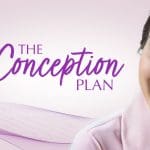Women’s health and fertility expert Dr Larisa Corda is offering her top exercise tips for couples looking to get pregnant…
There are so many benefits to exercise when you’re trying to get pregnant, for both men and women. It helps boost your circulation to your reproductive organs and also helps maintain a healthy body and mind. It encourages blood flow to the womb and ovaries, releases feel good endorphins, and improves libido and motivation. Exercise can also help to reduce stress but too much or being over vigorous can do the opposite, so be mindful and aim for that which is realistic and achievable for you. This will also help you to keep weight within the normal range that is vital for fertility and helps to reduce the chance of miscarriage. Remember, this is the season to create and tone your body in preparation for pregnancy. It also gives you an excuse to get out into the great outdoors and spend time soaking up the Vitamin D in the beautiful spring sunshine, which in itself helps to improve fertility in both men and women. It also increases levels of serotonin that can stave off depression and suppress appetite, allowing us to make healthier food choices. Whether you go for a jog, a walk, or spend time with your pets or blackberry picking, there are so many ideas and the main point is to start off small and build gradually, especially if you’re not used to exercising on a regular basis. This isn’t a competition, but a gradual process that may feel difficult committing to at first, but which will soon start to become something you crave doing.
– Why can exercise affect fertility?
Exercise is important for fertility for a few reasons, namely to help keep weight within the normal range, to help with hormone regulation that ultimately influences ovulation and sperm production, and to help improve circulation to the reproductive organs.
Exercise is a key component to managing weight, which is important for getting pregnant due to hormonal imbalances that occur with being overweight. Studies show that when a woman’s body mass index is above the normal range, losing as little as 5% of bodyweight can significantly improve the chances of getting pregnant. Exercise is also beneficial for men and has been shown to increase sperm count and quality.
Research has shown that moderate physical activity gives women better insulin function and an improved hormonal profile, and thus better conditions for fertility, especially if you have polycystic ovaries, where blood sugar regulation can be a problem.
Exercise also improves libido for both men and women and can help to reduce levels of psychological stress by the release of endorphins and by aiding better sleep, which in itself could help improve chances of pregnancy in both sexes. So loads of reasons there to get moving!
– Why can your periods stop if you’re exercising too much?
Women who exercise too much may lose too much body fat, which can negatively affect their oestrogen levels and cause irregular periods (oligomenorrhea), or even completely stop menstruation (amenorrhea). This situation is called called hypothalamic amenorrhea and could mean that your body stops ovulating, affecting your chances of pregnancy. But even if periods remain regular, too much exercise may still adversely affect rates of conception.
If too much exercise is done, your body starts perceiving this as a form of stress and this signals to the hypothalamus in the brain it might not be a safe time for reproduction, which can set off a cascade of hormonal changes leading to a problem with menstrual cycle regularity and ovulation.
– Can there be any long lasting effects on your fertility if my periods stop:
As far as we’re aware, there are no long lasting effects, because once the stress of exercising too much is removed, your periods should resume back to normal and the hormones controlling signaling between the brain and the ovaries should return to normal.
– What can sporty women do to help protect their fertility:
Being active is great and has a lot of benefits on your fertility, only in moderation, as too much can end up having a negative and counter-productive effect, as much as being inactive can. A lot of this and how much to exercise also depends on what levels of exercise your body is already used to. However, there is a theory that very high levels of physical activity can be so energy intensive that the body may not simply have enough energy to maintain all the necessary hormonal mechanisms that enable ovulation and fertilisation and could potentially reduce your chances of pregnancy.
This can often be fixed with a few tweaks to your training if you’re looking to get pregnant and want to remain in good healthy shape. Try swapping your intense interval training sessions, heavy weights, or long runs for more moderate workouts like pilates, yoga, brisk walking or swimming, and include one or two rest days to allow your body to recover. Make sure you consult your doctor if you’re not sure, who can provide advice on your exercise regime. And if you’re experiencing any problems with your menstrual cycles, it may be helpful to use a monitor, such as MyLotus, to help you track and understand your cycles better, whilst allowing you to share this information with your doctor.
– Why is yoga particularly good?
I’m a huge fan of yoga which I use to help me manage stress and improve my flexibility. Yoga is an ancient form of exercise that focuses on strength, flexibility and breathing to boost physical and mental wellbeing and emerged around 5,000 years ago in India. In recent years, several studies have extolled its benefits, and recently it’s been found to reduce the risk of heart disease just as well as aerobics, cycling or walking. When compared to no exercise, yoga was found to reduce BMI (Body Mass Index), lower blood pressure and reduce cholesterol. They also found that for patients with existing heart disease the benefits were even greater when coupled with statins.
Really importantly, it’s been discovered that yoga significantly reduced stress and anxiety in couples facing infertility. This is amazing because lots of studies are showing associations between stress and lowered chances of conceiving, and though difficult to prove, it’s overwhelmingly clear that stress is something almost everyone faces when trying for a baby, and in particular when this has been going on for a long time or in the context of treatment such as IVF.
The great thing about yoga is that committing to it and learning the skill will reap many rewards for when you are pregnant, as it’s a wonderful form of antenatal and postnatal exercise that’s gentle on the body, and has incredible long lasting benefits.
– A word on pregnancy exercise
Guidelines released earlier this year recommend a total of 150 mins of exercise if you are pregnant. That’s around 20-30 mins exercise each day. You need to do a minimum of three days of exercise each week, but ideally you need to be active each day. The recommendation is to do a combination of aerobic or cardiovascular exercise, such as running, along with some anaerobic resistance training exercise. In fact, multiple studies and date have shown significant improvements in not just the health of the woman, but also a reduction in pregnancy-related complications, such as pre eclampsia, high blood pressure, diabetes, caesarean section, instrumental delivery, urinary incontinence, excessive weight gain and depression. It does NOT increase the chance of miscarriage, stillbirth, preterm birth or birth complications, which is reassuring to hear. However, there will be women who may have conditions that mean this advice needs to be specifically adjusted and tailored for them, and some instances where exercise may be contraindicated, so always consult with your doctor. In addition, as your pregnancy progresses, some exercises may need adjusting, as your body changes, so again, seek the advice of a specialist regarding this.





